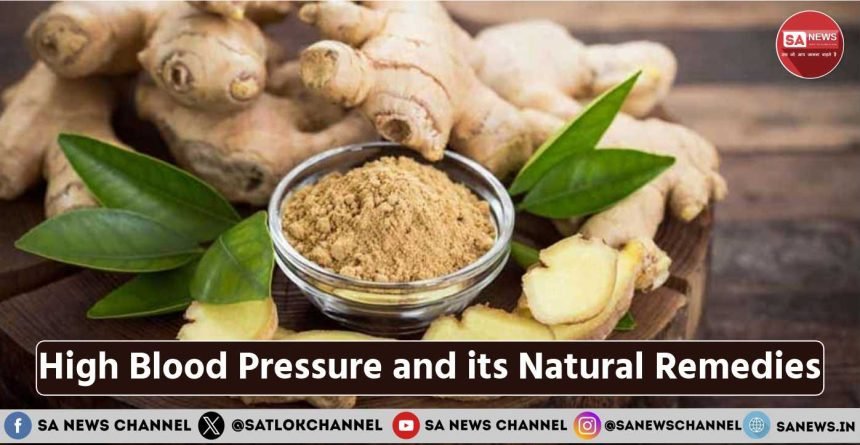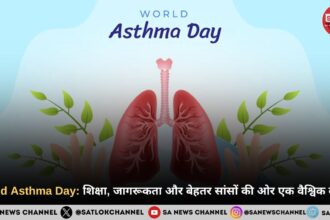“If you’ve been diagnosed with high blood pressure, your doctor may recommend a comprehensive approach to manage your condition. This may include lifestyle changes such as regular exercise, reduced sodium intake, and a balanced diet rich in potassium, as well as stress reduction techniques like meditation or deep breathing. Regular monitoring of your blood pressure and blood tests will help your doctor assess the effectiveness of your treatment plan.
- What is High Blood Pressure and its Risks?
- Important Blood Pressure Readings
- What is Systolic and Diastolic Pressure?
- Risks associated with High Blood Pressure
- Lifestyle Changes to heal High Blood pressure
- Natural Remedies for high blood pressure
- Natural Food Remedies may also help to control High Blood pressure
- World Health Organisation’s Report on High Blood Pressure
- Can faith and spirituality contribute to a healthier and happier life?
- FAQ on High Blood Pressure and it’s cure
- 1. What are the symptoms of high blood pressure?
- 2. What causes high blood pressure?
- 3. How can I lower my blood pressure naturally?
- 4. What are the risks of uncontrolled high blood pressure?
- 5. How can I manage my blood pressure through diet and lifestyle?
- Connect With Us on the Following Social Media Platforms
In some cases, your doctor may suggest dietary supplements like magnesium, or refer you to a specialist like a cardiologist or nephrologist for further care. By working together with your healthcare team, you can develop a personalized plan to manage your high blood pressure and improve your overall health.”
What is High Blood Pressure and its Risks?
High blood pressure, also known as hypertension, is a condition where the pressure of blood flowing through blood vessels is consistently too high. This can lead to damage to blood vessels, and organs, and increase the risk of various health problems.
Important Blood Pressure Readings
- Stage 1 hypertension: 130-139 mmHg (systolic) or 80-89 mmHg (diastolic)
- Stage 2 hypertension: 140 mmHg or higher (systolic) or 90 mmHg or higher (diastolic)
– A reading above 180/120 mmHg is considered a life-threatening emergency, requiring immediate medical attention.”
What is Systolic and Diastolic Pressure?
Systolic pressure reflects the force produced by the heart when it pumps blood out to the body, while Diastolic blood pressure (the bottom number) is the pressure in blood vessels when the heart is at rest.
■ Also Read: World Hypertension Day: Sat-Bhakti Is the Guaranteed Cure for Hypertension
Risks associated with High Blood Pressure
1. Heart Attack or Stroke: High blood pressure can lead to the narrowing or blocking of blood vessels, increasing the risk of heart attack or stroke.
2. Kidney Damage: High blood pressure can damage kidneys and increase the risk of kidney diseases.
3. Vision Loss: High blood pressure can cause damage to blood vessels in the eyes, leading to vision loss.
4. Heart Failure: High blood pressure can lead to heart failure, where the heart is unable to pump enough blood to meet the body’s needs.
5. Aneurysm: High blood pressure can cause blood vessels to weaken and bulge, leading to an aneurysm.
6. Memory Loss: High blood pressure can increase the risk of cognitive decline and memory loss.
7. Bone Loss: High blood pressure can increase the risk of bone loss and osteoporosis.
9. Sleep Apnea: High blood pressure can increase the risk of sleep apnea.
10. Eye Damage: High blood pressure can cause damage to the blood vessels in the eyes, leading to vision loss.
11. It’s important to manage high blood pressure through lifestyle changes and, if necessary, medication to reduce the risk of these complications.
Lifestyle Changes to heal High Blood pressure
- Exercise: Regular physical activity can lower BP
- Diet: Focus on whole, unprocessed foods, and limit sodium and sugar
- Stress Management: It is important to manage it, and take initiation from Tatvdarshi Saint and receive Satnaam and Sarnaam and practice both mantras to regulate your stress everyday
- Sleep: Aim for 7-8 hours of sleep per night
- Alcohol and Smoking: Never consume these and never eat fish, chicken, eggs and meat
Natural Remedies for high blood pressure
- Maintain a good lifestyle as it helps in managing BP
- Potassium-rich foods: Include bananas, leafy greens, and sweet potatoes in your diet
- Calcium and Magnesium: Essential minerals for blood vessel relaxation
- Herbs and Spices: Hawthorn, Coleus, and Cardamom may help lower BP
- Supplements: Berberine, and Aged Garlic Extract may be beneficial
- Acupuncture and Massage: Alternative therapies for stress relief and BP management
Natural Food Remedies may also help to control High Blood pressure
- Beetroot Juice: Rich in nitrates, which can lower BP
- Pomegranate Juice: Antioxidants and flavonoids may help reduce BP
- Dark Chocolate: Flavonoids can improve blood vessel function
- Berries: Rich in anthocyanins, which may help lower BP
World Health Organisation’s Report on High Blood Pressure
The WHO calls for urgent action to improve prevention, detection, and treatment of hypertension globally. 1.13 billion people worldwide have high blood pressure. 1 in 4 adults globally have hypertension.
■ Also Read: Healthy Heart Tips: Your Heart: A Symphony of Health – A Comprehensive Guide to a Strong and Vibrant Life
High blood pressure is a major risk factor for heart disease, stroke, and kidney disease and an estimated 21% of adults with hypertension have it under control. This means that about one in five people who experience high blood pressure are successful in preventing and controlling it through lifestyle changes and/or medication. Here are some ways to prevent high blood pressure.
- Eat more fruits and vegetables
- Limit salt intake to under 2 grams per day
- Exercise regularly
- Lose weight if overweight or obese
- Limit alcohol intake
- Manage stress
- Get enough sleep
Achieve control of High Blood pressure
However, High blood pressure is a serious condition that affects millions of people worldwide. But conventional medications can provide relief and the natural remedies offer a safe and effective way to complement traditional treatments. By incorporating lifestyle changes, dietary modifications, and evidence-based supplements into daily routine, can effectively manage blood pressure and reduce the risk of cardiovascular disease. Remember to consult with your healthcare provider before starting any new supplements or making significant changes to your lifestyle. With the right approach, anyone can take control of their health and wellbeing, and enjoy a longer, healthier life.”
“Take control of your health today and start living the life you deserve. By incorporating natural remedies and lifestyle changes into your daily routine, you’ll be amazed at how quickly you can lower your blood pressure and improve your overall well-being. Say goodbye to the stress and anxiety of high blood pressure, and hello to a brighter, healthier future.
Note:
– to understand the condition, find natural solutions, and manage it effectively to prevent complications.
– natural remedies and lifestyle changes can help control BP
– Always consult your doctor and dietician before making significant changes.
Can faith and spirituality contribute to a healthier and happier life?
The answer is yes! Research has shown that people who have a strong spiritual connection tend to have better mental and physical health, and may live longer. This is often due to factors such as:
- Reduced stress
- Increased sense of purpose and meaning
- Improved mood and emotional well-being
- Healthier behaviours and habits
- Stronger social connections and support
Of course, everyone’s journey is unique, and the relationship between spirituality and health is different. But for many people, nurturing their spiritual side can be a powerful step towards overall wellness!
The most important thing to remember is that true worship of the True God (Kabir Saheb ji) is the ultimate remedy for all physical problems. Only a True Spiritual Leader can guide us to the correct way of worship according to our holy scriptures, which can help us overcome all sorrows and pain. The Holy Vedas mention that there is one Almighty God who can cure our most severe diseases, extend our lives, and bring all kinds of happiness into our lives here, as well as help us to attain eternal salvation and peace in this birth and afterlife.
FAQ on High Blood Pressure and it’s cure
1. What are the symptoms of high blood pressure?
Many people with high blood pressure experience no symptoms at all, but common signs include headaches, dizziness, nosebleeds, and shortness of breath.
2. What causes high blood pressure?
High blood pressure can be caused by a combination of factors including genetics, poor diet, lack of exercise, stress, obesity, smoking, and excessive alcohol consumption.
3. How can I lower my blood pressure naturally?
Natural ways to lower blood pressure include exercise, stress reduction techniques, dietary changes (like increasing potassium and calcium intake), and supplements like magnesium.
4. What are the risks of uncontrolled high blood pressure?
Uncontrolled high blood pressure can lead to serious health complications, including heart attack, stroke, kidney disease, vision loss, and sexual dysfunction.
5. How can I manage my blood pressure through diet and lifestyle?
Managing blood pressure through diet and lifestyle involves making sustainable changes such as following a balanced diet (like the DASH diet focuses on vegetables, fruits and whole grains), increasing physical activity, maintaining a healthy weight, and stopping alcohol and sodium intake.









